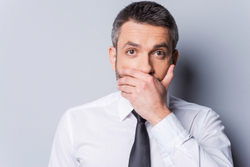 Scuba diving is a well-loved activity around the world, but many people participating in the hobby are unwittingly damaging their teeth without realizing they’re at risk until it’s too late. As it turns out scuba diving is bad for teeth for a number of different reasons. Taking one trip down underwater could leave you with broken teeth, an uncomfortable jaw and other mouth-related problems.
Scuba diving is a well-loved activity around the world, but many people participating in the hobby are unwittingly damaging their teeth without realizing they’re at risk until it’s too late. As it turns out scuba diving is bad for teeth for a number of different reasons. Taking one trip down underwater could leave you with broken teeth, an uncomfortable jaw and other mouth-related problems.
How Scuba Diving Puts Pressure on Teeth
Scuba diving is a unique activity that combines dry air, high pressure levels and an odd breathing mask together to create potential dental problems. The dry air can dry out your gums and lead to increased bacterial growth while lowering oral health. Scuba diving also puts your body down at higher pressure levels, which puts pressure on your teeth as well. With already fractured teeth you could suffer from broken teeth during the dive because of that pressure.
All the pressure that’s present on your body while diving down to depths of 50 or 100 feet isn’t great for your teeth as it is, but diving also creates air pockets under your teeth and can cause participants to bite down on the breathing regulator. This is especially common in new divers. Together, the high pressure, air pockets and irregular jaw clenching leads to discomfort and tooth damage very frequently.
There aren’t any dental requirements for you to go scuba diving. That means you could go underwater with already damaged teeth and crack them or cause other damage to your mouth without realizing the risk is even there. That’s why we want everyone to know what the risks are and also why we encourage people to come in to see us before heading down underwater for the first time. Get your teeth evaluated and make sure your mouth is ready for the strain that scuba diving will put on it.
